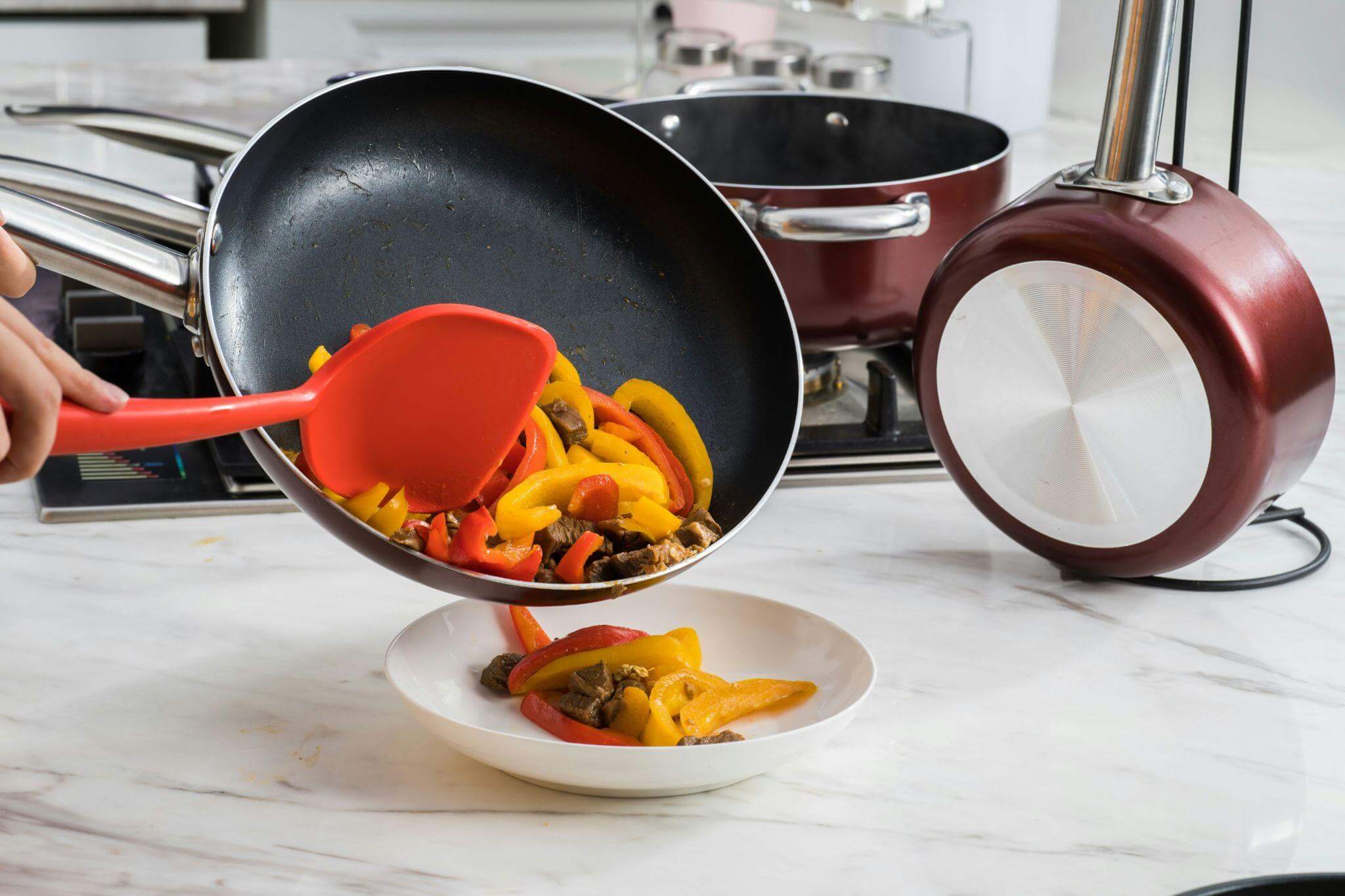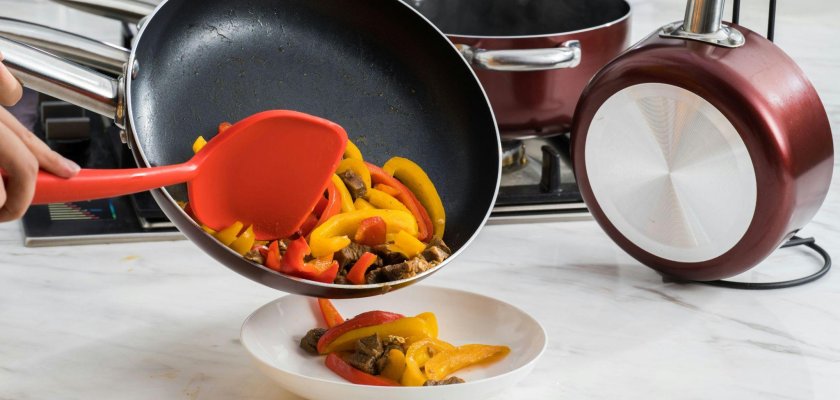
Non-stick cookware sets are a true blessing in any kitchen. They offer effortless cooking and reduced cleaning whether you’re flipping pancakes or sautéing vegetables.
But, to ensure the longevity and continued performance of your non-stick cookware, it’s essential to adopt proper care practices. Here are five practical strategies to help you extend the lifespan of your cherished non-stick cookware:
Choose the Right Utensils
The magic of non-stick cookware lies in its ability to release food effortlessly with minimal oil. But, you’ll want to avoid metal utensils that can scratch the delicate non-stick coating and lead to damage.
To preserve your pans, opt for utensils made of silicone, wood, or plastic. These materials are gentle on the non-stick surface, allowing you to keep your cookware in pristine condition for many years to come.
Control the Heat
While non-stick pans can handle moderate heat without a problem, exposing them to high temperatures can harm the non-stick coating. Additionally, excessive heat can also cause the non-stick surface to degrade, resulting in uneven cooking or food sticking to the pot, pan, or piece of cookware.
To prevent overheating, always use low to medium heat settings when cooking with non-stick cookware. Additionally, refrain from preheating an empty pan, as this can lead to overheating and potential damage.
These tips might seem simple, but they’re crucial to helping you preserve the integrity of your non-stick cookware for years to come.
Store Thoughtfully
Proper storage is essential for maintaining the quality of your non-stick cookware. Avoid stacking pans directly on top of each other, as this can lead to scratches and abrasions on the non-stick surface. Instead, place a soft cloth or paper towel between pans to prevent friction damage.
If hanging your cookware, use hooks or a dedicated rack to ensure that each pan has sufficient space and support. By storing your non-stick cookware thoughtfully, you’ll protect it from unnecessary wear and tear, prolonging its lifespan for many meals to come.
Handle with Care During Cleaning
After cooking up a storm, the temptation to toss your non-stick pans into the dishwasher may be strong. Yet, this shortcut can significantly diminish their lifespan. Abrasive detergents and rough scrubbers can also wear down the non-stick coating and release harmful microplastic particles.
Instead, opt for gentle hand washing using warm, soapy water and a soft sponge or cloth. For stubborn residue, allow the pan to soak before delicately scrubbing it with a non-abrasive sponge. Treating your pans with care during cleaning will ensure years of reliable use.
Embrace Regular Maintenance
Like any well-used tool, non-stick cookware sets benefit from regular maintenance to keep them in optimal condition. Periodically inspect your pans for signs of wear, such as scratches or flaking in the non-stick coating.
If you notice any damage, consider replacing the affected pan to prevent food from sticking and ensure optimal cooking performance. Additionally, re-seasoning your pans periodically can help rejuvenate the non-stick surface and extend their lifespan.
Simply coat the pan with a thin layer of oil and heat it gently for a few minutes before wiping away any excess oil.
Treat Your Cookware With Respect
Non-stick cookware sets are invaluable assets in the kitchen, simplifying meal preparation and enhancing your cooking experience. By choosing the right utensils, controlling the heat, storing thoughtfully, handling with care, and embracing regular maintenance, you can ensure that your non-stick pans remain in top condition.

